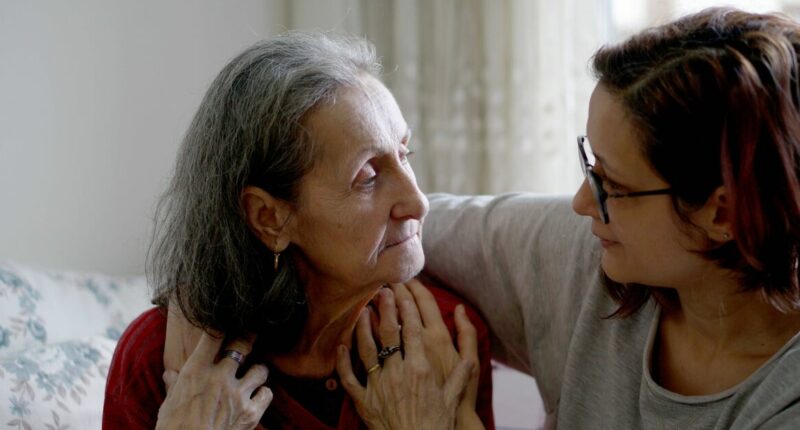Share this @internewscast.com
In a recent revelation, a psychologist has shed light on the concept of ‘mixed dementia,’ clarifying a widespread misunderstanding. Dr. Kelynn Lee, who leads the Dementia Care Hub and is an esteemed researcher in cognitive decline, addressed the topic in response to a question on TikTok.
The inquiry came from a viewer who had discovered that their mother was diagnosed with mixed dementia. They mistakenly thought this indicated that doctors were uncertain about the type of dementia, but Dr. Lee made it clear that this was not the case.
In a video released in September, Dr. Lee explained, “No. Mixed dementia is when an individual has more than one type of dementia. For instance, instead of having only Alzheimer’s disease, a person might have both Alzheimer’s disease and vascular dementia.”
She further elaborated, “This is probably the most common scenario when discussing mixed dementias. So, it’s not about doctors being unsure; it’s about having two types of dementia.”
Dementia is an umbrella term that includes various conditions like Alzheimer’s disease, all characterized by a progressive decline in brain function. According to the NHS, over 944,000 individuals in the UK are living with dementia. Meanwhile, the Alzheimer’s Society reports that about one in ten people experience mixed dementia.
Mixed dementia involves a combination of different dementia types and lacks a unique set of symptoms. Therefore, caregivers must understand the symptoms associated with each type, as it is typical for one type’s symptoms to be more prominent than the others.
Official guidance at Alzheimer’s Society adds: “Alzheimer’s disease with vascular dementia. This is the most common type of mixed dementia. It’s caused by a person developing Alzheimer’s disease and at the same time having diseased or damaged blood vessels supplying their brain.
“The two different types of disease combine to make symptoms worse than they would be on their own.” At present, there is no cure for mixed dementia, but treatments are available to alleviate its symptoms, which may include confusion, forgetfulness, and speech difficulties, among others.
Anyone who suspects that they or a loved one may be exhibiting dementia symptoms should consult their GP.
Potential early indicators of dementia
The signs of dementia will differ depending on the type. However, during the early stages, common symptoms may include:
- Mood changes
- Difficulty concentrating
- Finding it hard to carry out familiar daily tasks, such as getting confused over the correct change when shopping
- Memory loss
- Struggling to follow a conversation or find the right word
- Being confused about time and place
NHS guidance adds: “These symptoms are often mild and may get worse only very gradually. It’s often termed ‘mild cognitive impairment’ (MCI) as the symptoms are not severe enough to be diagnosed as dementia.
“You might not notice these symptoms if you have them, and family and friends may not notice or take them seriously for some time. In some people, these symptoms will remain the same and not worsen. But some people with MCI will go on to develop dementia.
“Dementia is not a natural part of ageing. This is why it’s important to talk to a GP sooner rather than later if you’re worried about memory problems or other symptoms.”
For more information, visit the NHS website.
















